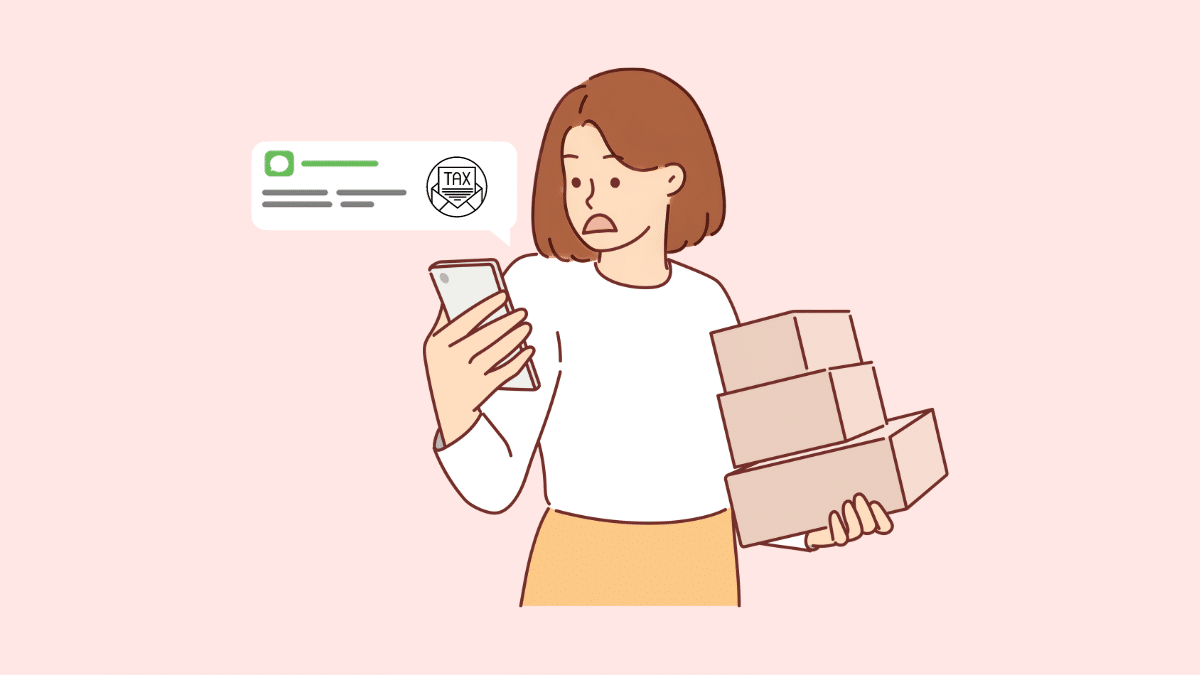Making money selling online? Changes from HMRC will mean new ways that your side hustle earnings are reported.

What’s happening?
Starting from January 2024, digital platforms, including eBay, Etsy, Vinted, Airbnb, Deliveroo, and Uber, will have to tell HMRC about your sales and income.
That means if you’re selling loads of stuff online or renting out your space, HMRC will now know about it.
Get a free £10 bonus with Swagbucks
Earn a bit of extra money in your spare time with surveys, videos, and simple tasks you can do at home.
New users can get a £10 bonus when they sign up.
Get the £10 bonus
The rules cover any “app, website or other type of software that connects sellers to the consumers of their goods and services”. This can include providing taxi and private hire services, food delivery services, freelance work and the letting of short-term accommodation.
While it’s not explicitly stated, I can see this also being applied to paid survey sites and receipt snapping apps (let’s watch this space and see what happens).
Some people are calling it a “side hustle tax” – however, it’s not a new tax or law, just a new way of reporting earnings.
This change is because of new international rules to stop tax dodging.
What does this mean for me?
This change is all about making sure everyone pays the right amount of tax.
It’s not about stopping your side hustles but ensuring everything’s above board.
It won’t impact everyone.
Essentially, you don’t need to do anything different.
The platforms are the ones that need to do the new reporting.
You should continue to pay tax (or not pay tax as per the current guidelines), depending on how much money you make on the side.
Selling your personal stuff
If you’re just selling a few bits here and there, such as clothing, old toys, DVDs, books, games, unwanted gifts, etc, then you’re probably fine.
The key numbers are if you are selling 30 items or more a year or if you are earning over €2,000 (around £1,700).
If you sell below this, your details won’t be shared automatically.
But remember, if you earn more than £1,000 from selling, you might still owe tax – see how much money can you earn from a hobby before paying tax.
Buying and selling for profit
If you have turned your selling into more of a side hustle to raise funds on an ongoing basis rather than flogging the stuff from the back of your wardrobe, this will apply to you.
Maybe you do a weekly charity shop haul and sell it on, or go to boot sales specifically looking for cheap things to sell online for more?
Again, because of the Trading Allowance, if you make under £1,000 (before platform fees), you may not need to pay income tax and National Insurance, but the information about your sales WILL be shared with HMRC.
If you are earning more than this, you need to be registered under the Self-Assessment (but you would need to do this anyway).
How to stay on the right side of HMRC
The digital platforms will start reporting to HMRC by 31 January 2025, showing any backdated information from 2024.
- Keep track: Record how much you are making to avoid surprises.
- Check your earnings: If you’ve made less than £1,000, you’re probably fine.
- Register if needed: Earned more? You might need to register as self-employed and file a tax return.
If you earn more than £1,000 yearly from side hustles, you already need to be registered as Self-Employed, so check back on your sales.
Read next: Christmas crafters urged to check tax rules before selling
What’s next?
If you think you owe tax, get ahead of the game and file a self-assessment tax return.
And if you don’t owe anything, you don’t need to do anything special.
The platforms will send their users a copy of what is sent to HMRC so you can see what money you’ve made over the last year.
Do check any info sent to you by them to make sure everything matches up.
Saved a few quid with our tips?
If Skint Dad has helped you spend less or feel more in control of your money, you can support the site with a small contribution.
- I was sent a fake HMRC tax notice. Here’s how to spot the scam - 8 January 2026
- A once-a-year money check most families forget (with rough savings) - 6 January 2026
- The January bills reality check: the traffic light method that works - 1 January 2026

Sally says
How are the government allowed to tax you on 2nd 3rd or 4th hand items these are old used items that were originally taxed at source when first bought.